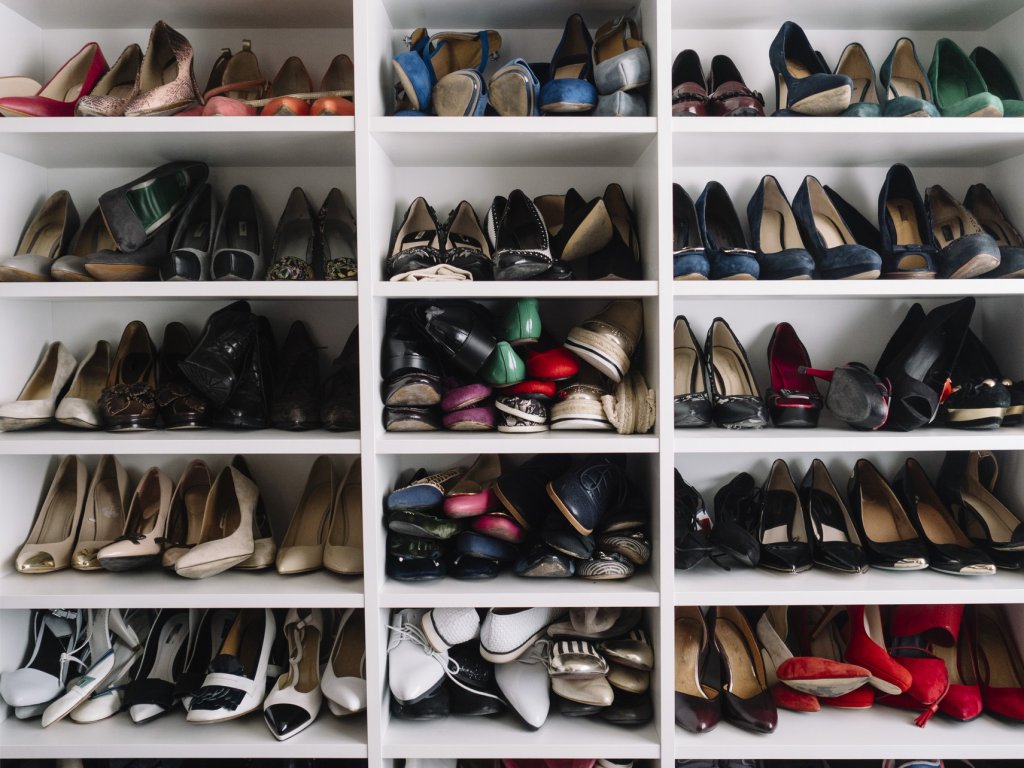Inside: Learn how clutter and mental health relate to each other and the importance of decluttering your space.
Most of us know that we shouldn’t live in a home filled with clutter – but why?
Some might think it’s simply a societal expectation. When people come over, we want them to see a clean, well-maintained space – not a whirlwind of chaos.
Others might think the big benefit is that less clutter means we have less stuff to clean. And while that is certainly true, that’s not the only motivating factor.
One of the most important reasons you should keep clutter under control is to take care of your mental health. Clutter can have a surprisingly negative impact on your well-being – and you might not even realize it.
Living among ever-present stuff that we don’t need and can’t contain drags us down in more ways than we might realize.
By understanding the real toll that clutter can take on your mental health, you can recognize the importance of maintaining a clutter-free home and find the motivation you need to take steps to make that a reality.
Not sure how living in a messy space can take a serious toll on your mental well-being? Here are just a few of the ways that living with too much clutter can mess with your mind.

5 Ways Clutter and Mental Health Are Linked
The relationship between clutter and mental health can be a complicated one. But we do know that there are a variety of ways that clutter negatively impacts you and your mental health. Here are a few of them.
1. Clutter can cause stress and increase anxiety.
Your home should be your sanctuary – a place where you can relax at the end of a long day, unwind, and find a sense of peace.
But when you live in a home surrounded by clutter and stuff you don’t need, finding that sense of relaxation is going to be difficult, if not impossible.
That’s because having too much stuff can literally cause us to feel stressed out. The mere presence of things we don’t need, overwhelming our space, is enough to cause most people’s stress levels to spike.
Studies have found that women’s cortisol levels are elevated when they’re in a cluttered environment.
The need to declutter and get organized is an ever-present to-do, lurking in the back of your mind, even if you don’t think you want to tackle it.
And if you’re dealing with stress or anxiety from other factors in your life? Living in a cluttered environment is only going to make it worse, compounding the feelings that you’re already experiencing.

2. Clutter can contribute to depression.
Clutter doesn’t just cause you to feel stressed out or anxious – there are other impacts clutter can have on your mood, none of which are positive.
There’s a clear association between depression and clutter. It’s a mutual relationship in the worst possible way, with each one contributing to the problem of the other.
Many who suffer from depression experience a lack of motivation as a result. This inability to find motivation can impact every area of life, from work to relationships to – you guessed it – keeping your physical space organized.
And the more clutter accumulates, the more overwhelming the idea of decluttering and cleaning it up will be.
When you’re battling depression, you don’t have the mental tools to overcome that feeling of overwhelm – so you simply accept it, perpetuating the problem and making things worse.

Clutter & the feelings that come with it
Even if you aren’t dealing with depression, clutter can take a negative toll on your mental well-being, contributing to feelings of…
Guilt. Some people feel a sense of guilt when they live among clutter. You might feel guilty that you spent so much money on stuff you don’t need – in some cases, going into debt to accumulate it all. You might feel guilty that you own so much stuff when there are others in real need, who could actually put it to good use.
Shame. Living in a messy, cluttered space that’s out of control can cause feelings of shame. You might be embarrassed to bring friends or loved ones over because you don’t want them to see the state of your home. In some cases, you might even distance yourself from the people you care about, withdrawing to avoid the possibility of bringing someone into your space.
Asking for help with addressing your clutter might be the best way to build momentum and solve the problem. However, letting go of the accompanying emotional clutter and allowing someone to see how out of control things have gotten is challenging.
Helplessness. You might feel like you legitimately can’t solve your clutter problem because it’s too out of control. You don’t know where to begin, and you feel powerless to address the problem.
If you think you may be a hoarder, getting started can be a challenge, but it’s not impossible.
The good news is you can declutter for a fresh start and let go of the thoughts, feelings, and stuff that’s been holding you back. While it’s not necessarily easy to do, you can make a lot of progress one step at a time.

3. Clutter can hinder your decision-making abilities.
When you’re surrounded by clutter, you’re surrounded by constant distractions, making it difficult to focus and think critically.
As a result, clutter can negatively influence your ability to make decisions. And having a lot of stuff contributes to decision fatigue because you’re forced to make so many choices every day.
In some cases, you might be too overwhelmed to even make a decision; in others, you might make the wrong decision.
Declutter helps to limit the decisions you need to make each day. It also helps you to have more clarity when you need to make a decision.

4. Clutter can stifle your creativity.
Similar to why clutter can make it difficult to make smart decisions, clutter can also inhibit your creativity.
Your mind needs space and freedom to wander, explore, and create.
However, when it’s being bombarded by too many stimuli from the amount of stuff and mess that surrounds you, your creativity suffers.
Decluttering limits distractions and frees up your mind to focus on the task at hand.

5. Clutter can leave you exhausted.
Living in a cluttered space is overstimulating. You’re constantly surrounded by stuff you can’t ignore.
You’re overwhelmed. And the level of effort it takes to find something you actually need that’s hiding among all of your stuff? It can be downright exhausting.
And unlike the exhaustion that comes from doing something physical, or learning something new, or overcoming a major obstacle, the exhaustion that comes from living among clutter isn’t rewarding – it’s absolutely draining, making it even more difficult to find the motivation you need to address the problem.
But once you muster up the energy to start, you can make a ton of progress and experience the benefits of decluttering for yourself.

Clutter and Mental Health: Resources for Decluttering
If you’ve realized that clutter is negatively impacting your mental health and are ready to make a change, here are some posts to help.
- How to start decluttering
- 8 ways to get motivated to declutter
- How to get rid of mental clutter and clear your mind
- Easy 10-minute decluttering tasks that will have big results
What relationship has clutter and mental health had in your life? Leave a comment and share your experience.
Sign up on the form below to get weekly decluttering tips sent straight to your inbox. You’ll also get the free Your Home Decluttered Jumpstart which includes 100 easy items to declutter and 12 high-impact areas to declutter in 10 minutes.
window.fd(‘form’, {
formId: ‘5e39ccca5581900027294cf7’,
containerEl: document.querySelector(‘#fd-form-5e39ccca5581900027294cf7’)
});
The post Clutter and Mental Health: 5 Ways a Messy Space Can Mess With Your Mind appeared first on The Simplicity Habit.

